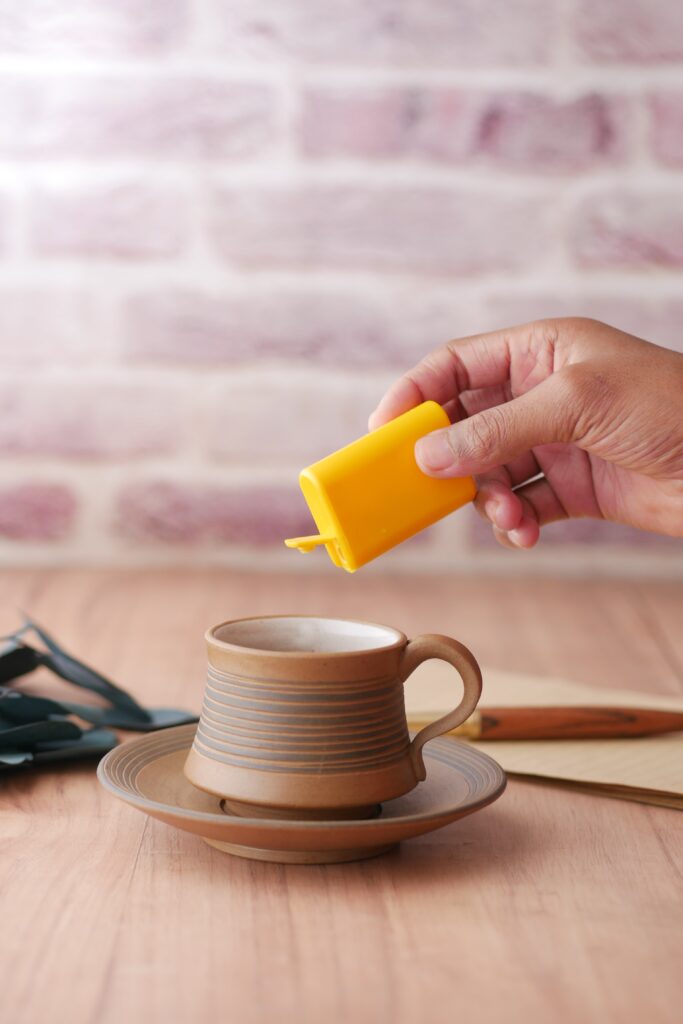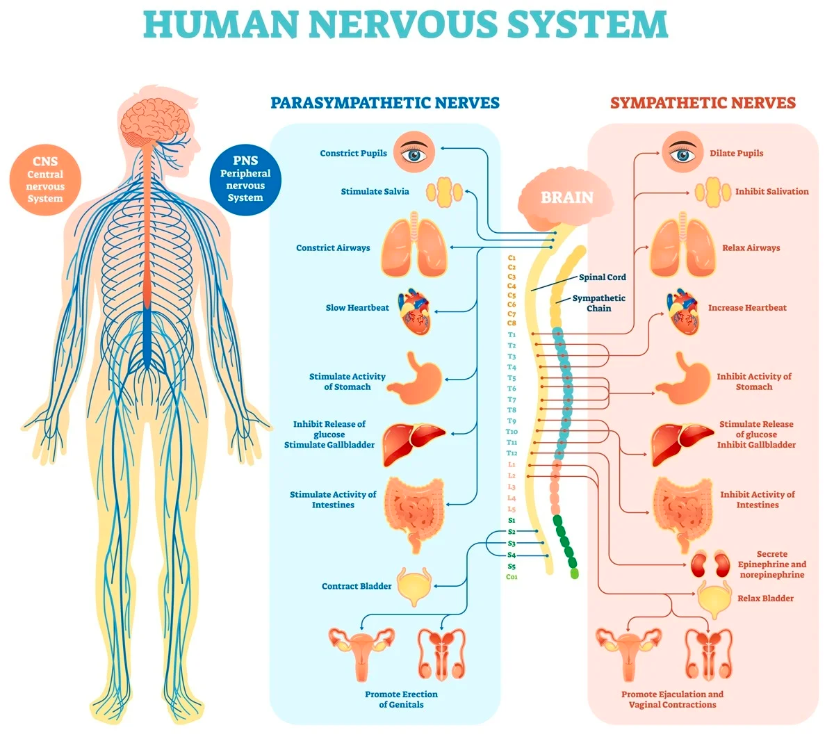Artificial sweeteners and gut health: Which are safe and should we be consuming them at all?
August 17, 2023

What was once considered the ultimate swap for diabetics and dieters alike is now being reconsidered as a disruptor to your gut microbiome. Since seeing artificial sweeteners in the headlines with claims of them being carcinogenic and destructive to weight management, diabetes and gut health I knew this is a topic I wanted to cover in my blog. The word artificial is scary enough but we do love that we get some of the sweetness we want without the calories. So we’re left wondering if it’s better to be eating sugar or whether the benefits of artificial sweeteners outweighs the potential downfalls. With newer and newer research emerging let’s look at what we know (so far) about artificial sweeteners and gut health: which are safe and should we be consuming them at all.
What are artificial sweeteners?
Artificial sweeteners are most often grouped into two camps: Nutritive and Non-Nutritive Sweeteners. Both are used as low-caloric/non-caloric replacements to sugar and sugar sweetened beverages and snacks. Let’s look at how these two camps differ:
Nutritive Sweeteners:
Nutritive sweeteners would technically be things like sugar, honey or coconut sugar for example. What we’re talking about today specifically are substitutes. Sweetness substitutes and nutritive sweeteners would be sugar alcohols. Sugar alcohols are lower in calories than regular sugar. And they don’t cause a big spike in blood glucose like sugar does either. This is why these remain a popular choice for dieters.
Sugar alcohols have some funny names so when in doubt the names of these nutritive sweeteners include -ol- in them. Think sorbitol, xylitol, lactitol, mannitol, erythritol, and maltitol as examples. These vary from less sweet to just as sweet as sugar. They are loved by dentists because they do not cause cavities like sugar does.
Non-Nutritive Sweeteners:
These are the more common ones we see on coffee shop tables and in grocery store isles. These are ones like Aspartame (NutraSweet® and Equal®), Acesulfame-K (Sweet One®, also known as ACE K), Neotame, Saccharin (Sweet’N Low®)
These have a similar shape molecularly to sugar so they fit on sweetness receptors on our tongue. The difference is that our bodies cannot break them down and use them as fuel so they have no calories. This made them great choices and alternatives for people with diabetes for example. Studies originally showed that artificial sweeteners also didn’t raise blood sugar at the time of consuming them.
So how do non-nutritive sweeteners affect on our body.
Some great news is that the amount of soda consumption in the US has decreased in the last two decades. The bad news, however, is that Americans are still consuming a whopping 44 gallons per year.
A reason that these became so popular was due to the rise in zero calorie soda. Even I fell for the hype of thinking: “Wow this tastes delicious AND it has no negative impacts on me NOR does it have any calories”. Maybe it seems too good to be true because it is. While it’s still up for debate whether many adverse effects studied are due to the artificial sweeteners themselves. OR whether these are thanks to the type of people more likely to reach for diet soda is still up for debate in a lot of research. Here’s what has been more definitively shown.
Artificial sweeteners and gut health in food choices:
Newer studies suggest that although your blood sugar doesn’t rise immediately, artificial sweeteners may raise your blood sugar later on. The other potential downfall of sweeteners is how it may trigger your pancreas to secrete insulin. This is to deal with the calories the amount of calories indicated by the sweetness but that don’t come. This may lead to an increase in your appetite for you to eat something to use the insulin. Many epidemiological studies had people reporting they felt hungrier after consuming artificial sweeteners than they did consuming the same amount of calories but excluding the artificial sweetener.
These artificial sweeteners can be up to 200% sweeter than sugar. This much sweetness actually seems to impact our taste buds making things like fruits taste less sweet.
This double whammy means that we may be getting a glucose spike later, be craving and eating more AND the types of food we’re craving will likely be processed to appease the now somewhat sweet drunk taste buds.
Artificial sweeteners and gut health overall:
Research from the likes of Harvard (as of 14 August 2023) show potential harms of artificial sweeteners being a decline in the diversity of gut microbiome (this was looking specifically at saccharine, sucralose and aspartame). Studies also show these sweeteners in specific increase your risk of glucose intolerance.
These sweeteners also might be increasing the population of unfavourable gut bacteria: Enterobacteriaceae and Deltaproteobacteria – These are responsible for a variety of human diseases. However, because a gut microbiome is as unique as a fingerprint it is also true that different peoples’ gut bacteria could respond differently to different artificial sweeteners.
To consume or not to consume?
You likely already know what’s coming… as always – it depends. Here are some factors to consider in making this decision.
- How much are you consuming?
- How healthy is your gut microbiome currently?
- What is the majority of your diet made up of?
How much are you consuming?
The overarching message from research is that all the sweeteners mentioned above are safe for human consumption in moderate amounts.
How Healthy is your gut microbiome currently?
If you have a healthy, happy and diverse gut microbiome, having a bit of artificial sweeteners present shouldn’t be harmful as far as current research is concerned.
What is the majority of your diet made up of?
You are what your gut microbiome eats. If your diet is rich in a variety of your guts’ favourite food (fibre in the form of legumes, grains, fruits, vegetables, nuts and seeds), then your gut will be well-equipped to handle artificial sweeteners in moderate amounts. BUT if your diet already consists of a lot of ultra processed food-like products then cleaning up your diet along with cutting out artificial sweeteners is a great choice for your gut.
Personally, I have the integrity to try my best and the honesty to admit I don’t always get it right. For that reason I try to avoid non-nutritive sweeteners as far as possible despite consuming it relatively infrequently, while eating a variety of fibre-rich, colourful food and with a happy and healthy gut microbiome.
For my goals and lifestyle it makes sense NOT to leave my gut health to chance. I also do not like the idea of ramping up my appetite and reaching for more processed foods thereby consuming more calories that I likely would have if I just chose the honey or coconut sugar option.
What about “natural” artificial sweeteners and gut health (Stevia and Monk Fruit).
For my sweet tooth girls out there, don’t fear, there may be hope! While Stevia studies show that it might impact gut health and appetite; it would have to be in very large amounts to do so. The jury is still undecided on Monk Fruit as a sweetener, so if this is your preference then follow the same rules of “less is more”. Also note any changes in your appetite after consuming any kind of sweetener since, like mentioned above, every gut microbiome is unique.
What would your Gut Health Coach do:
The underlying take-away from one of the latest studies is “consumption of artificial sweeteners might actually contribute to the development of metabolic derangements that lead to obesity, T2D, and cardiovascular disease”. Yikes. And yes this study included Stevia. After considering all this I took a step back and considered what might be best for the body. More calories but not damaging my gut microbiome? Or less calories and a host of potential dangers? I choose health thank you very much.
The study cited above shows how nutritive sweeteners, sugar alcohols, like xylitol for example do NOT negatively impact the gut microbiome. What’s more is they might even act as a prebiotic (feeding your healthy gut bacteria). So while it does have more calories than artificial sweeteners it seems like the benefits outweigh the extra calories.
If health is your main goal:
If calories are not your concern and it’s the healthiest possible option you’re after then honey is not only a prebiotic – it’s also anti-inflammatory, antioxidant and an antibacterial agent according to the Mayo Clinic.
The best option for drinks:
I know how popular soda and pop is here in the US, but the answer seems easy. Ditch the daily diet cokes and dive into the real stuff. Remember the days of SodaStream, homemade honey-sweetened ice tea at your grans’ house or even freshly squeezed orange juice for breakfast? Effort is in and your health is worth the effort of swapping your daily diet soda for something equally as delicious but friendly to your gut microbiome.
A quick note before I conclude is to remember to choose as natural or raw as possible when it comes to honey as many store bought options are often “fake honey” fortified with sugar and sugary syrups. The same goes for fruit juices. Even fruit juices that claim “100% fruit juice blend” trick us in the word “blend”. Thirdly when I’m speaking about sodastream I do NOT mean the corn syrup mixes, if it’s just the bubbles you’re after then it’s a great choice. Especially when mixed with some homemade OJ or homemade ice tea.
Moderation over absolutes:
This doesn’t mean you can never enjoy a diet soda again. If it really is something you love and have in moderation to complement your otherwise whole food diet then I want you to do you. But I do hope this article means you’ll think twice about how much you’re consuming and be open to trying some new delicious alternatives. Gone are the days of just thinking health and weight loss is a game of calories in vs calories out. WHAT you eat does matter as much if not MORE than how much you’re eating.
What we know for sure is that more research is needed on all of this before we can say anything with absolute certainty. But I do hope this short guide helped.
If you are unsure of the state of your gut microbiome or you know you need help healing your gut and leading a healthier and happier life then my team at the Gut Health Agency and I can’t wait to help.
Until next time loves
xx
Chelsea.
Leave a Reply Cancel reply
Featured
Read
Podcast
Have you tuned in?
Chelsea interviews professionals to bring YOU today’s most updated knowledge on nutrition and wellness.




